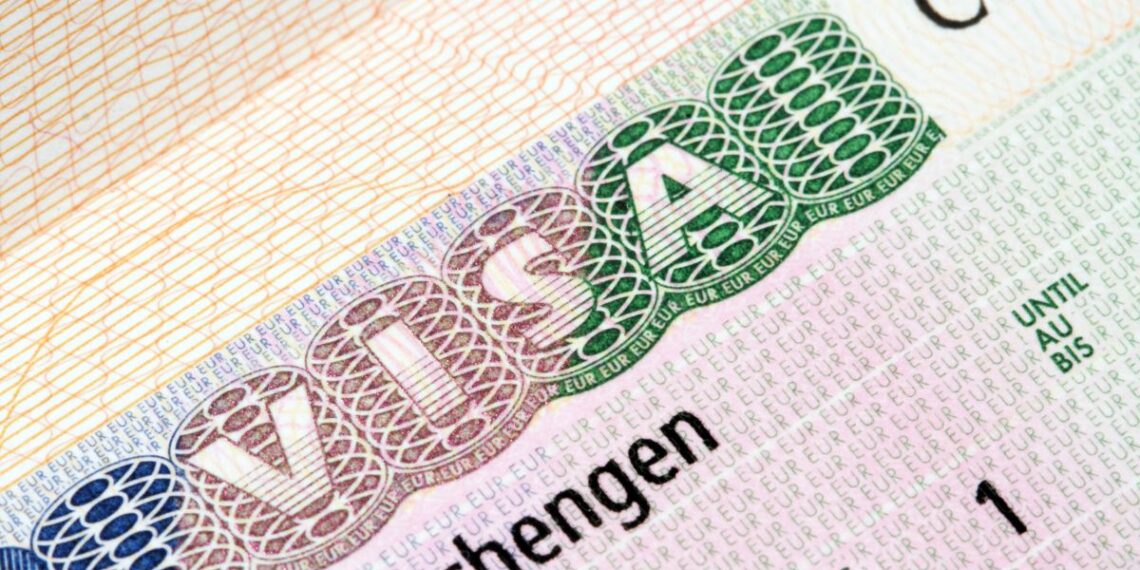News
Schengen visa fees for non-EU countries set to increase by 12% from June 11

The European Commission has announced a 12% increase in Schengen visa fees for non-EU countries which will increase from €80 to €90 and for children from €40 to €45.
This directive will take effect from the 11th of June.
The Commission has attributed the rise to inflation, with the fee adjustment following a 3-year review by the Commission.
The fee increase was proposed by the Commission on February 2, following a December meeting where member states overwhelmingly supported the revision.
Additionally, the Commission has suggested allowing external providers of Schengen visas to raise their fees in accordance with this revision.
Despite this hike, the Commission considers these fees “relatively low” compared to other countries, noting that visa costs start at €134 in the UK, around €185 in the US, and €117 in Australia.
About Schengen visas
Schengen visas permit entry into most EU countries, excluding Ireland and Cyprus, as well as Romania and Bulgaria.
On the other hand, non-EU member countries like Norway, Iceland, Lichtenstein, and Switzerland are also part of the Schengen Convention.
These visas are essential for non-EU citizens outside the 90-day visa-free rule and are valid for short stays such as tourism or family visits in 28 European countries.
Schengen visas, however, do not permit holders to obtain employment in the host country.
Unlike Nigeria, citizens of countries like the US, Canada, the UK, and Australia can enjoy 90 days of visa-free travel every 180 days and hence do not need a Schengen visa for short visits.
Typically, external providers, like visa agencies that handle Schengen visa applications for the member states, can charge up to half of the standard fee.
The proposal includes an increase in this cap from €40 to €45.
For individuals extending their Schengen visa, the fee remains fixed at €30.
Currently, the EU is also considering increasing fees even further for countries that show “insufficient cooperation on readmission” – accepting the re-entry of individuals expelled from member states.
For countries that have not demonstrated cooperation in citizen readmission, the fee could increase from €120 to €135 and from €160 to €180.
Overview of Schengen visas
- Nigerians are required to apply for a visa to a particular country under the Schengen agreement.
- Before applying, it is important to understand the specific purpose of the visit. Schengen visas must be applied at the Embassy or Consulate of the main destination country where the applicant will spend the most time.
- Therefore, if travelling to multiple Schengen countries, the application should be submitted to the Embassy or Consulate of the country with the longest stay.
- In cases of equal stay duration, the application should be submitted to the mission of the Schengen country representing the first port of entry.


 Top Stories16 hours ago
Top Stories16 hours agoTinubu’s Aide Condemns Plan To Reinstall ‘Jesus Is Not God’ Banner In Lekki Mosque

 Top Stories11 hours ago
Top Stories11 hours agoBreaking: FIRS Announces Fresh Recruitment, See Eligibility Criteria, Application Deadline

 News16 hours ago
News16 hours agoPetrol To Sell ₦935/Litre From Today – IPMAN

 Top Stories16 hours ago
Top Stories16 hours ago2025 Budget Cannot Address Nigeria’s Economic Challenges – Atiku

 Top Stories13 hours ago
Top Stories13 hours agoPrimate Ayodele’s Prophecies For 2025

 Entertainment16 hours ago
Entertainment16 hours agoI will be more influential in Nigeria than UK – Tobi Adegboyega

 News16 hours ago
News16 hours agoPresident Tinubu’s reforms not responsible for food stampedes – FG








